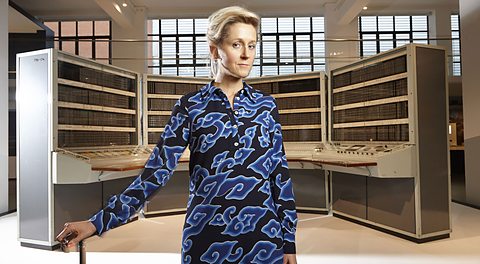
We, like many, watched with keen interest the Richard Dimbleby Lecture 2015 on the BBC last night. The lectures, established in memory of broadcaster Richard Dimbleby, have run nearly every year since 1972. They have featured entrepreneurs like Bill Gates and James Dyson, along with a long list of lords and politicians, clergy and academics.
Hosted from the Science Museum, the broadcasters guest was Baroness Martha Lane-Fox. She used her opportunity to call for a new public institution to help us understand “the complex moral and ethical issues that the internet presents”.
“Putting the internet at the heart of things enables you to make more interesting choices. But that requires people understanding the transformative power of the net, and how to use it to build great services. We have to embed the net into public and civic life.” “It’s time to balance the world of dot-com.” She has started a petition at Change.org calling on the PM to set up Dot Everyone.
“Britain invented the BBC, the NHS – let’s not have a poverty of ambition – we can and should be inventing the definitive public institution for our digital age.”
Lane Fox says the organisation will feel new, “it won’t and shouldn’t feel familiar. No grey suits, no dusty buildings”. It should focus on educating the population about the internet and put women at the heart of the technology sector, she explained.
Another remarkable stat which came to light last night was according to Lane-Fox that 70% of small businesses are not online.
“No wonder these businesses are missing out on growth. Our estimates show that helping every small business understand digital would contribute £18bn to the economy,”
As we know, Baroness Lane-Fox was the brains behind the website lastminute.com. After its launch, the company was floated on the London Stock Exchange and valued at a phenomenal £768m.
Baroness Lane-Fox asked the audience, “Couldn’t he see beyond his prejudices about a 25-year-old woman to glimpse the inspiring, brave new world ahead?”
This question was asked because remarkably after she and her then business partner, Brent Hoberman, pitched their idea it was rejected because the investor was too preoccupied with her biological clock to understand the opportunity that was afforded him.
Despite it being some seventeen years since her pitch of a lifetime, it is a memory that still lives with her. Lady Lane-Fox informed us that just 14% of the UK tech industry is female, with a staggeringly low figure of only fewer than 10% of its investors are women.
She was made a cross-bench peer in 2013, with a mission to speak up for the technology sector. She noted that “The House of Lords is about 24 per cent female. In the technology sector, it’s 17 per cent. But in engineering, the female sector goes down to about four per cent! We are creating things that are less diverse than they could be because women aren’t embedded in the design process.”
It was an inspiring speech from Baroness Lane-Fox.
